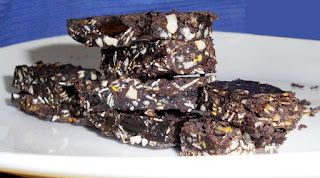 |
| spreadshirt.com |
Caffeine, and similarly smoking and sugar, makes us feel good, because it raises blood sugar levels.
Constant rising and dropping of blood sugar and using stimulants to overcome tiredness can be very dangerous for some of us. It may take several years to show but slow depletion of adrenal reserves can lead to abnormal fatigue, often this happens after we experience some stressful event.
Constant rising and dropping of blood sugar and using stimulants to overcome tiredness can be very dangerous for some of us. It may take several years to show but slow depletion of adrenal reserves can lead to abnormal fatigue, often this happens after we experience some stressful event.
Adrenal glands produce hormones such as adrenaline and cortisol, which are helping us to get on with everyday life and stress. Stress can be anything like cold weather, hot room, too much toxins, noise, or emotional stress.
Overusing stimulants such as coffee, chocolate, Coke or smoking can cause exhaustion of adrenal glands and this can lead to
Source of table 1: M Glenville "Natural Solutions to Infertility"
Overusing stimulants such as coffee, chocolate, Coke or smoking can cause exhaustion of adrenal glands and this can lead to
- depression, anxiety, chronic fatigue and impaired stress hormone production
- headaches, migraines, dizziness, insomnia, irritability, nervousness
- poor mental performance
Each of us has own limit, which for some could be just 1 strong cup of tea a day. If you have sleep problems, even this could be too much. Tea (black, decaf and green) and chocolate also contains theobromine, another potent stimulant.
1 cup of ground coffee
|
115mg
|
1 large bar
of dark chocolate (125g/4oz)
|
80mg
|
1 cup of
instant coffee
|
65mg
|
2
painkiller tablets
|
60mg
|
1 cup of
tea
|
50mg
|
1 can of
cola
|
40mg
|
1 large bar
of milk chocolate (125g/4oz)
|
20mg
|
1 cup of
drinking chocolate
|
3mg
|
1 cup of
decaf coffee
|
3mg
|
COFFEE
|
|
Brewed (8oz/240ml)
|
95-200mg
|
Instant (8oz/240ml)
|
27-173mg
|
Espresso (1oz/30ml)
|
40-75mg
|
Decaf
Espresso (1oz/30ml)
|
0-15mg
|
Decaf (8oz/240ml)
|
0-15mg
|
TEA
|
|
Black (8oz/240ml)
|
14-61mg
|
Green (8oz/240ml)
|
24-40mg
|
Black decaf
(8oz/240ml)
|
0-12mg
|
SOFT DRINKS
|
|
Diet
Coke(355ml)
|
38-47mg
|
Pepsi
(355ml)
|
32-39mg
|
Diet
Pepsi(355ml)
|
27-37mg
|
Coca
Cola(355ml)
|
30-35mg
|
Dr
Pepper(355ml)
|
36mg
|
Source of table 2: http://www.mayoclinic.com/health/caffeine/AN01211
CHOCOLATE
|
|
Dark 70-85% (100g)
|
80mg
|
Milk (100g)
|
20mg
|
Cocoa
powder (1 TBSP)
|
12mg
|
WHAT ARE ALTERNATIVES?
Tea
- most herbals
- Roiboos (red bush)
- use one bag of ordinary (black or green) tea per litre of water, not per cup
Coffee
- Caro and other chicory and grain based
- powdered mushrooms (Chaga with Reishi tastes great)
Drinks
- molases cola (mix with lemon, stevia to sweeten and mineral sparkling water),
- filtered tap water with lemon
- pure mineral water
Chocolate
- Carob powder
- mushroom powders (1/4tsp of strong Chaga + 1 tsp of Reishi per cup tastes like Moca)
Chocolate
- Carob powder
- mushroom powders (1/4tsp of strong Chaga + 1 tsp of Reishi per cup tastes like Moca)

















